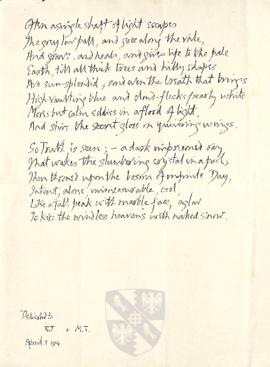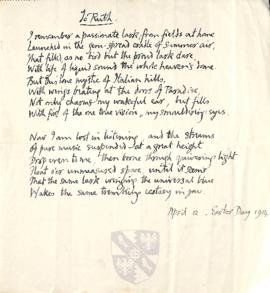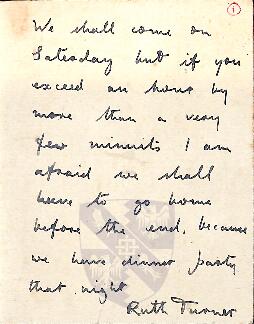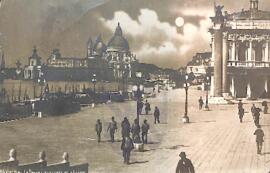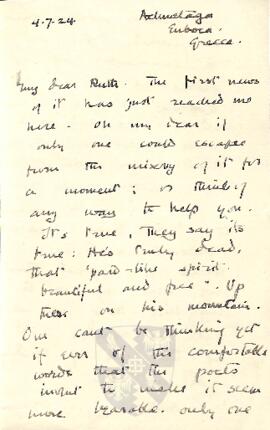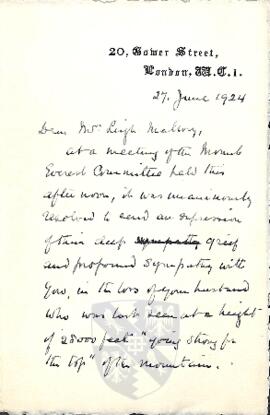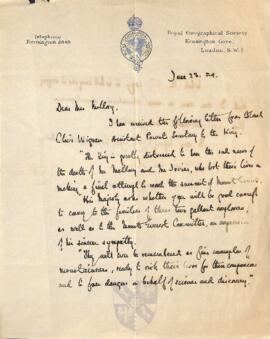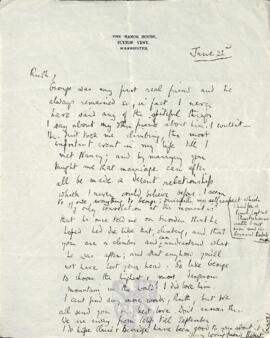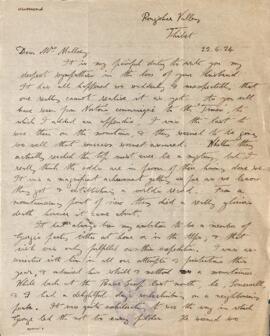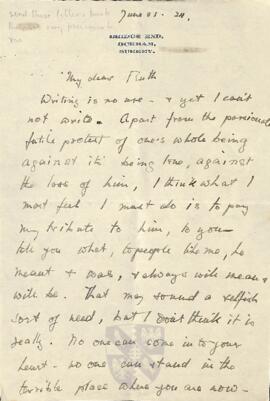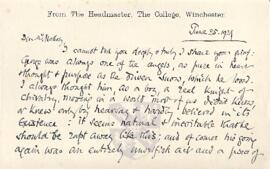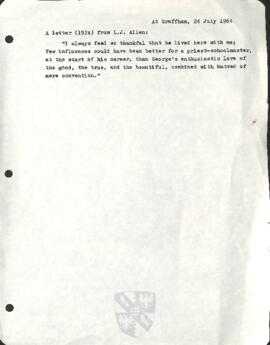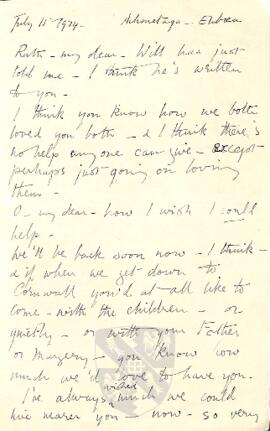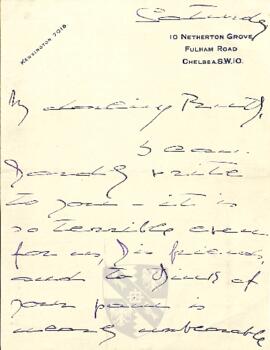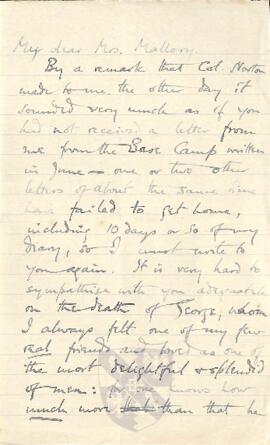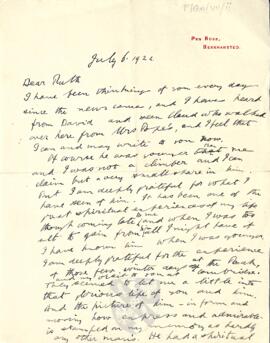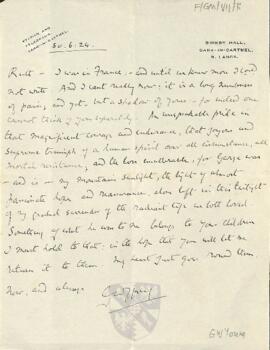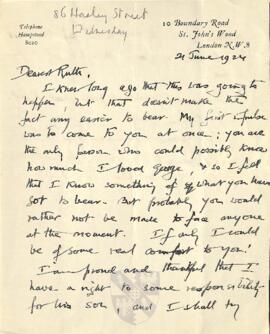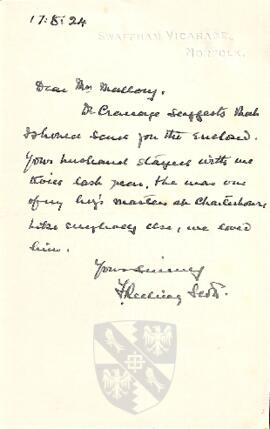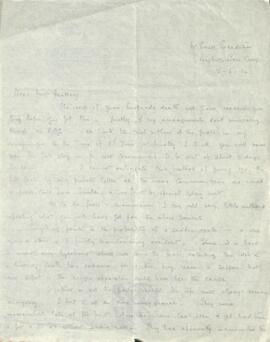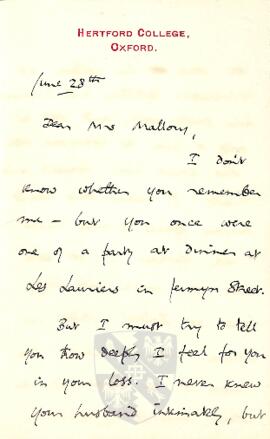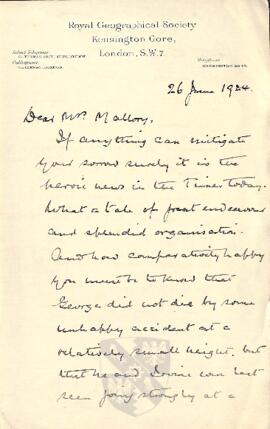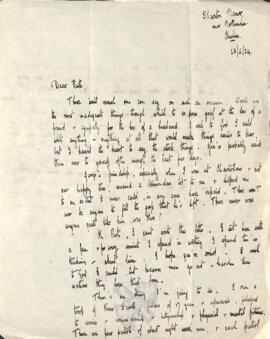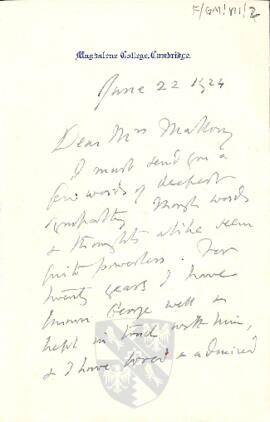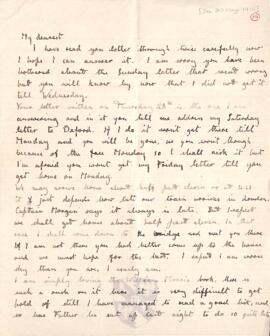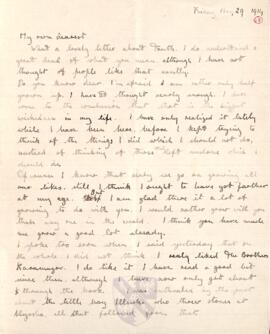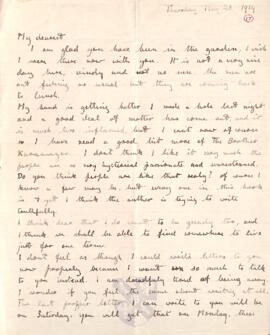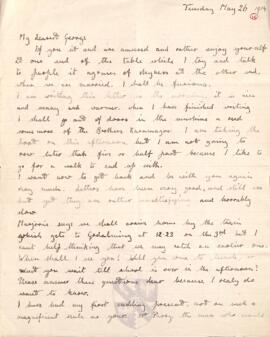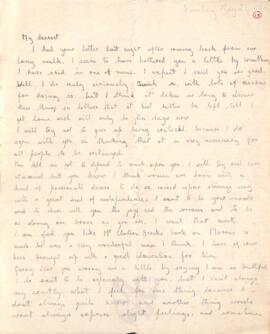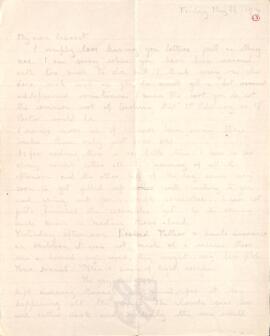Sonnet written by George and dedicated to Ruth Turner and her sister Marjorie
Sonnet written by George and headed To Ruth
Postcard from Ruth Turner to George Mallory at Charterhouse.
Full Transcript
We shall come on Saturday but if you exceed an hour by more than a very few minuits [sic] I am afraid we shall have to home before the end, because we have dinner party that night
Ruth Turner
Postcard from Ruth Turner to George Mallory
Full Transcript
We are arriving at Verona station Friday morning at 10.0
Ruth Turner
Will married Ruth Mallory in 1939 a year after the death of his wife.
Letter from Sir Francis Younghusband to Ruth Mallory on the death of her husband George on Mount Everest in which he conveys a message form King George V
alike seem quite powerless
Letter from Ruth Turner to George Mallory written from Ireland
Apologises for not getting his letter. Warns him that he may not receive this letter in time. Informs him of her time of arrival and hopes he will meet her. Describes her plans for the day. Reproaches him for sending her threatening letters and for keeping her waiting. Expresses how much she misses him and talks of their future home and children.
Mallory, George Herbert Leigh (1886-1924), mountaineerLetter from Ruth Turner to George Mallory written from Ireland
Discusses her opinions on truth and reflects on growing up. She has changed her opinion of her book The Brothers Karamazov and has started reading William Morris by Mr Clutton-Brock. Expresses her desire to have Barnsley furniture in their house. Urges him to attend his sister’s wedding without her. Requests a photograph of Mary.
Mallory, George Herbert Leigh (1886-1924), mountaineerLetter from Ruth Turner to George Mallory written from Ireland
Tells him her hand is getting better. Discusses her book The Brother Karamazov. Is tired of writing letters. Gives her opinion on Keats and discusses William Morris’s designs. Relays a conversation with Uncle Hawes on the temper of women. Tells of her plans for the day. Expresses the kindness of Miss Wilton to offer them her house.
Mallory, George Herbert Leigh (1886-1924), mountaineerLetter from Ruth Turner to George Mallory written from Ireland
Describes her morning's activities and plans for the day. Notifies him of her time of arrival and asks him if he will meet for lunch. She has received her first wedding present from Mr Parry. Expresses her worries over married life. Is looking forward to getting home.
Mallory, George Herbert Leigh (1886-1924), mountaineerLetter from Ruth Turner to George Mallory written from Ireland
24 May – Thinks he is good for many reasons and won’t give up being critical. Voices her opinions on the role of women’s independence in marriage. Is glad he likes Mr Clutton-Brocks’ book on William Morris. Expresses her concerns over voicing her feelings. She has finished the Alpine book. Describes a walk that led her to a mountain range called Dooish, their progress was slow as Mildred got tired. Explains the plan they had for reaching the top. Describes the scenery. Tells him of another mountain he might like to climb. Describes the journey home. Had a wonderful time telling fairy stories with Mildred and Alison.
25 May – Is sorry his last letter was so short. Describes her morning fishing with the party. She is glad he has written to his mother. There has been no news from Miss Davies. Expresses her opinions on a Russian story she is reading.
Mallory, George Herbert Leigh (1886-1924), mountaineerLetter from Ruth Turner to George Mallory written from Ireland
Understands how difficult his job can be compared to Mr Pilsbury and Mr Porter. Talks of her time away so far and the activities she has been doing. She has not finished Scrambles yet. Discusses his sonnet. She intends to lunch at Garten. She hopes he will prefer to fish one day. She thanks him for the photograph.
Mallory, George Herbert Leigh (1886-1924), mountaineer